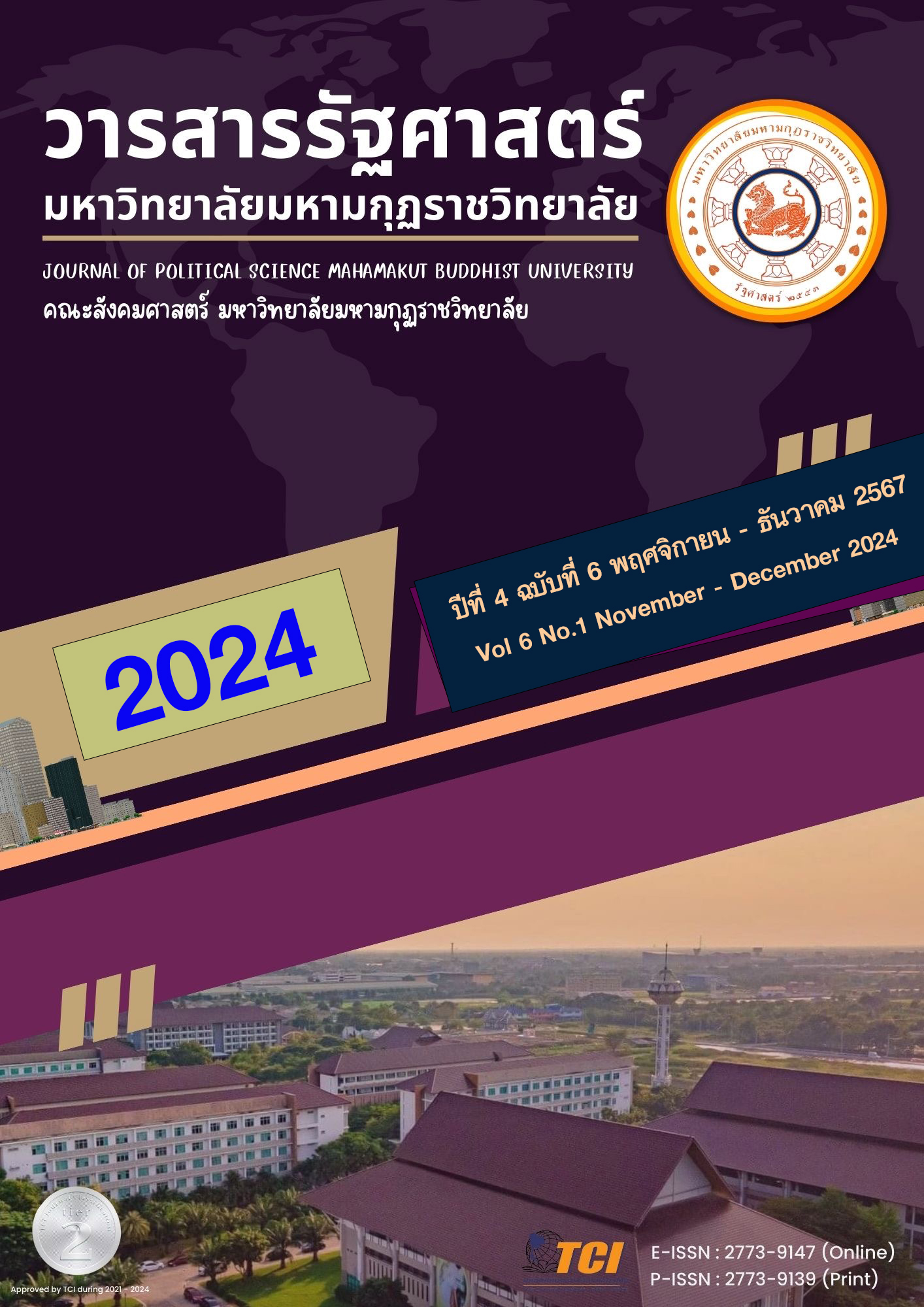GUIDELINES FOR ENHANCING DIGITAL COMPETENCIES OF PRIVATE VOCATIONAL SCHOOL ADMINISTRATORS
Main Article Content
Abstract
The development of digital technology has significantly impacted economic, social, educational, and lifestyle transformations. The Thai government has implemented the Digital Development Plan for Economy and Society to support the 20-year national strategy. This plan emphasizes the development of infrastructure, innovation, and human capital to sustainably drive Thailand's economy and society. In the educational dimension, the integration of digital technology, such as distance learning and digital systems in educational institutions, enhances efficiency, reduces inequality, and promotes lifelong learning.
The concept of competency is a key factor in human resource development, comprising knowledge, skills, and other attributes. Competency can be categorized into core competencies, job-specific competencies, and personal competencies, all of which are essential for personnel development in any organization. Regarding digital technology, digital competencies encompass basic ICT skills, teaching-specific ICT competencies, learning strategies, and digital development. These competencies aim to enable individuals to adapt and utilize technology effectively.
In the context of teacher and educational personnel development, it is essential to enhance knowledge, skills, and positive attitudes. Teachers must undergo continuous development to meet the demands of 21st-century education. Supporting learner-centered education and fostering digital skills will improve the quality of education and drive effective educational management. Furthermore, promoting the use of information technology in education management will prepare Thailand for the digital economy and the modern world sustainably.
Article Details

This work is licensed under a Creative Commons Attribution-NonCommercial-NoDerivatives 4.0 International License.
References
กระทรวงศึกษาธิการ. (2554). เทคโนโลยีดิจิทัลและการศึกษาในยุคปัจจุบัน. กรุงเทพมหานคร: กระทรวงศึกษาธิการ.
คณะรัฐมนตรี. (2558). นโยบายและแผนระดับชาติว่าด้วยการพัฒนาดิจิทัลเพื่อเศรษฐกิจและสังคม (2561–2580). สำนักงานคณะกรรมการดิจิทัลเพื่อเศรษฐกิจและสังคมแห่งชาติ.
ณรงค์วิทย์ แสนทอง. (2547). แนวคิดและประเภทของสมรรถนะ. กรุงเทพมหานคร: สำนักพิมพ์แห่งหนึ่ง.
ดารณีย์ พยัคฆ์กุล. (2561). องค์ประกอบของสมรรถนะ. กรุงเทพมหานคร: สำนักพิมพ์มหาวิทยาลัย.
ธนา ธุศรีวรรณ. (2562). การพัฒนาบุคลากรในยุคดิจิทัล. กรุงเทพมหานคร: สำนักพิมพ์วิทยาการศึกษา.
น้ำทิพย์ วิภาวิน. (2557). แนวทางการพัฒนาความสามารถของบุคลากร. วารสารการศึกษาและการพัฒนา, 25(3), 45–60.
บัญชา วงศ์คำภา. (2563). ความหมายของเทคโนโลยีดิจิทัล. กรุงเทพมหานคร: สำนักพิมพ์ปัญญา.
พิณสุดา สิริธรังศรี. (2557). การพัฒนาครูในยุคใหม่. วารสารวิชาการศึกษา, 19(2), 22–38.
วิจารณ์ พานิช. (2555). สมรรถนะผู้บริหารในยุคดิจิทัล. กรุงเทพมหานคร: สำนักพิมพ์บ้านความคิด.
อานนท์ ศักดิ์วรวิชญ์. (2547). คุณลักษณะและสมรรถนะในการทำงาน. วารสารการบริหารทรัพยากรมนุษย์, 12(1), 15–30.
อาภรณ์ ภู่วิทยพันธุ์. (2551). องค์ประกอบของสมรรถนะในงานอาชีพ. กรุงเทพมหานคร: สำนักพิมพ์มหาวิทยาลัยราชภัฏ.
อัญสุชา บุญขันตินาถ. (2561). การพัฒนาทักษะด้านดิจิทัลของข้าราชการครู. วารสารการพัฒนาทรัพยากรมนุษย์, 20(1), 33–45.
ฎายิน วงศ์หงส์. (2550). พฤติกรรมและสมรรถนะในงานราชการ. กรุงเทพมหานคร: สำนักพิมพ์ราชกิจการ.
รัชฎา ณ น่าน. (2550). พฤติกรรมที่ส่งผลต่อความสำเร็จในงาน. วารสารการจัดการศึกษา, 15(2), 77–92.
เกษรา เอี่ยมสอาด. (2562). ประโยชน์ของการพัฒนาบุคลากรในองค์กร. วารสารการบริหารทรัพยากรมนุษย์, 28(3), 18–30.
Davies, B., & Ellison, L. (1997). Competence and performance management in education. New York, NY: Taylor & Francis.
Krumsvik, R. J. (2008). Digital competence in teacher education. Oslo: University of Oslo Press.
Lloyd, R., & Cook, A. (1993). Competency-based training and the workplace. London: Falmer Press.
UNESCO. (2018). ICT competency framework for teachers. Paris: UNESCO.


